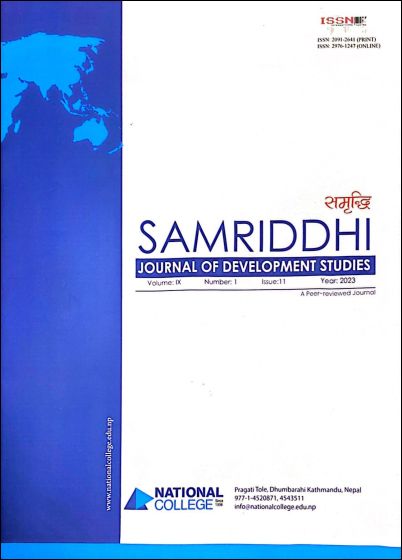Women's Reproductive Health Rights to Population Control: An Investigation Carried Out in Riverine Areas of Sonitpur District of Assam
DOI:
https://doi.org/10.3126/sjds.v9i1.71619Keywords:
population control, women empowerment, reproductive health rights, family planning servicesAbstract
Reproductive health rights guarantee that individuals can procreate freely, choosing when and how often to do so, and that they can have fulfilling and safe sexual relationships. This study focuses on the knowledge and practices of women in the riverine area with regard to reproductive health rights. By empowering women to make decisions about the number of children they want, how many to have, and how to use contraception, this study contributes to population control. Focus groups and case studies were used to perform a descriptive study with 103 women in the reproductive age range of 18 to 49 years old living in a riverine location in the Sonitpur district of Assam, India. The bulk of the 103 respondents were 18–27 years old, were in this age range. The majority of them lacked basic knowledge about reproductive health and rights and were illiterate. Additionally, the women don't use the family planning services that the primary health centers offer. As a result, women in Assamese riverine areas possessed very little knowledge and practiced few reproductive health rights, which led to an imbalance in population control.




